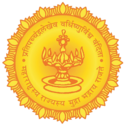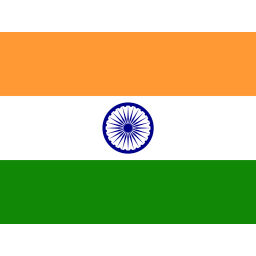Address by Governor at Closing Ceremony of the 15th Mumbai International Film Festival (MIFF) in Mumbai
Address by Shri CH. Vidyasagar Rao, Governor of Maharashtra at the Closing Ceremony of the 15th Mumbai International Film Festival (MIFF) for Documentary, Short & Animation Films organized by the Films Division, Ministry of Information & Broadcasting in collaboration with Government of Maharashtra at Tata Theatre, NCPA, Mumbai at 5.00 pm on Saturday, 3 February 2018
Shri Vinod Tawde, Hon’ble Minister for Culture and Higher and Technical Education, Government of Maharashtra, Shri Manish Desai, Festival Director and Director, Films Division, Shri Kiran Shantaram, Shri Shyam Benegal, Smt Swati Pandey, Director of Administration, Films Division, Distinguished Jury, Members of the Diplomatic Community, filmmakers from across the world, directors, cinematographers, writers, critiques, award winners, delegates, invitees, ladies and gentlemen,
Good evening and greetings to you.
I am pleased to associate myself with the closing ceremony of the 15th edition of the Mumbai International Film Festival for Documentary, Short and Animation films.
At the outset I congratulate the winner of the V. Shantaram Lifetime Achievement Award Shri Shyam Benegal. There could not have been a better choice for this award than Shri Shyam Benegal. Shri Benegal is not just a brilliant film-maker and documentary film maker. He is a social thinker whose works have compelled us to ponder and introspect. By honouring him, the stature of the award has enhanced manifolds. I also congratulate the winner of the Golden Conch and the Silver Conch awards, and winners of various Special Awards who were honoured today.
I also convey my appreciation to all the nominees and participants of the 15th edition of MIFF.
The participating films were adjudged by the most distinguished Jury members, and I take this opportunity to congratulate and applaud Jury members for their excellent work.
With today’s concluding function, curtains have come down on the most thrilling and action packed week. I understand that there were numerous screenings, discussions, seminars, workshops, master classes, open forums and reviews of short, animation and documentary films and also release of books during the last one week.
It is gratifying to note that the popularity of MIFF is growing with every edition. During the last 28 years, MIFF has emerged as a democratic, secular and independent platform that has offered liberty and freedom to filmmakers to explore, experiment and share their ideas with the audience.
I am confident that in the years to come, MIFF will be reckoned among the most coveted festivals for short, animation and documentary films in the entire world.
The host of this festival, namely the Films Division is a grand repository of priceless audio – visual content. Films Division is perhaps the biggest producers of documentary and short films not just in India, but perhaps in the whole of Asia.
I congratulate the Films Division and the Ministry of Information and Broadcasting for hosting the 15th edition of MIFF.
Ladies and gentlemen,
History informs us that the documentary film in India was born much before the making of the first feature film.
The first full-length motion picture in India was produced by late Shri Dadasaheb Phalke, the pioneer of the Indian film industry. He produced the film Raja Harishchandra in the year 1913.
But a documentary, named ‘The Wrestlers’ was made by H.S. Bhatavdekar in the year 1899. The film showed a wrestling match at the Hanging Gardens in Mumbai. According to one version, ‘The Wrestlers’ is regarded as the first Indian documentary film.
During the last more than 100 years, the Indian feature film industry has scripted a dream story.
Today, on an average 1600 feature films are produced in India every year. These include Hindi, Tamil, Telugu, Bengali, Marathi and all regional language films. Indian films are watched by people in all countries and continents of the world.
As Governor, I often receive Heads of State and Heads of Government visiting Mumbai on business visits. Every visitor expresses his amazement and excitement about Indian feature films.
I am glad that the Mumbai International Film Festival has given a fresh impetus to the documentary film movement in India. I have no doubt in my mind that Indian documentary and short films will create a similar impact in the world in the years to come.
Ladies and gentlemen,
Documentary films hold a mirror to society. They reflect the reality of life, the joys, happiness and sorrows of society. Documentary films have played a significant role in changing the perception of India in the eyes of the world. Documentary films have challenged the established order and upheld the best traditions of democracy. I do feel that documentary films are an index of the liberty, freedom of expression and democracy enjoyed by the people of a country. We therefore must preserve and protect the documentary film movement at all costs.
The arrival of digital media, as also social media, has really revolutionized the documentary making technique. It has empowered the common man with the power of technology to make and even circulate a film. Today a documentary film can be made and screened even with a small budget. However, good story-telling remains at the core of documentary films.
As the youngest nation in the world – the average age of an Indian will be 29 years, much younger than the average age of people in many developed countries – I do feel that India needs a young generation of film makers, gifted with adventure spirit and the art of story-telling. India also needs women filmmakers in large numbers who will represent, discuss and highlight the issues of women in India in a proper perspective.
Even though India is rapidly urbanizing, more than half the population of the country still lives in the villages. And therefore we want filmmakers coming from rural areas, from towns and villages and those from various socio-economic strata of society to make films. We want our filmmakers to make films in every language and every dialect. Together they can bring out the real India, the beauty of India, the diversity of India, the paradoxes of India, the peculiarities of India and the everyday struggle for existence faced by the people of India.
As Chancellor of 20 Universities in Maharashtra with student enrollment of nearly 3 million, I wish to see the Films Division working closely with the Mass Communications Departments of Universities in the State.
Mumbai is not just the commercial capital of India. The city is also the film capital of India. Mumbai should therefore have a full – fledged University dedicated to film making. I assure you, of my fullest support in establishing such a university in Maharashtra.
I fully endorse the view that India needs a dedicated television channel to screen documentary, short and animation films. Today there are dedicated channels for lifestyle, entertainment, sports, yoga and Satsang. Why can’t we have a separate channel for films from this genre?
Before I conclude, I once again congratulate and thank the Films Division and other organizers and supporters who organized the film festival. I also convey my sincere appreciation to the Ministry of Information & Broadcasting and Government of Maharashtra for their support to the Festival.
I congratulate all the award winners and hope to see you again at the 16th edition of Mumbai International Film Festival.
Thank you
Jai Hind ! Jai Maharashtra !!
***



